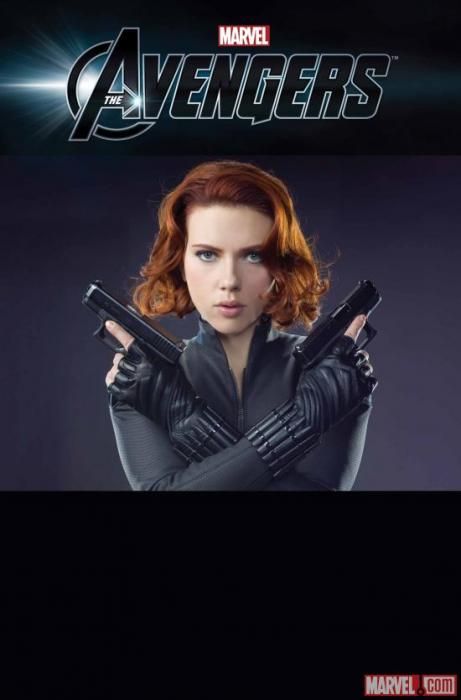"Black Widow Strikes #1", by Fred Van Lente and a slew of artists is the latest entry in Marvel's surprisingly sparse canon of comics based in the Marvel Cinematic Universe. On one hand, that makes sense. Why make comics of the movie of the comics? On the other, if you're going to market those characters outside of traditional audiences, then you might as well take advantage of the fact that Marvel is known for its comics.
The series, "Black Widow Strikes," is born of the latter reasoning, designed to tell a story set between "Iron Man 2" and "Avengers" that explores the character of the Black Widow further than such ensemble films allow. In this case, though, it seems designed to explore her body further, because she spends not one, but two multi-page action sequences in what amounts to little more than underwear. Hardly an encouraging tone to set.
It'd be easier to forgive if the story was up to much, but even fan-favorite Fred Van Lente's presence does little to give it any sizzle. In the story, the Widow has caught the attention of a murderous "fan" and finds herself at odds with the woman, who is herself a secret agent. It's a thin plot used to justify a pair of ploddingly pedestrian fight scenes, but what really disappoints is the story's take on the Black Widow, who resembles neither the Marvel Universe version, nor the character witnessed in Avengers.
Traditionally, Natasha is headstrong, calculating and manipulative. Here, she's weak, uncertain and overly reliant on Agent Coulson (of all people) to get her out of scrapes. More like a low-rent version of Sydney Bristow (of TV's "Alias") than herself. With the Widow as one of the breakout stars of "The Avengers," it's actively embarrassing to see her so poorly written -- and worse, so unremarkable -- in this comic.
The comic's split between two artists does little to help its cohesion. Neil Edwards turns in a vaguely Neal Adams-esque intro with a decent (if traditional) approach to storytelling and dubious costume design. Meanwhile, Steve Kurth's chapter looks rushed with off-model faces and poses designed to show off the Widow's body instead of her skills. Again, it's predominantly unremarkable, but when it isn't it's because it's bad.
It's certainly not an awful comic, but there's a distinct feeling that no-one involved is putting their best foot forward. Licensed tie-in comics have a rich history of mediocrity and sadly, even an association with what is (for this week, at least) the world's hottest brand in pop-culture can't break that cycle. Don't feel bad for skipping it.

